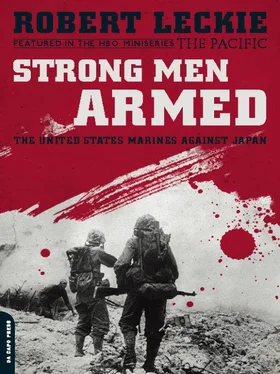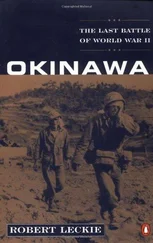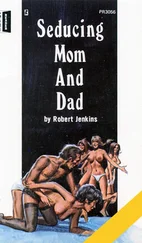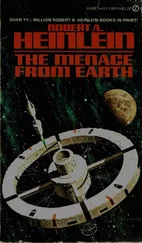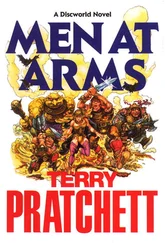Robert Leckie - Strong Men Armed
Здесь есть возможность читать онлайн «Robert Leckie - Strong Men Armed» весь текст электронной книги совершенно бесплатно (целиком полную версию без сокращений). В некоторых случаях можно слушать аудио, скачать через торрент в формате fb2 и присутствует краткое содержание. Город: Cambridge, Год выпуска: 2010, ISBN: 2010, Издательство: Da Capo Press, Жанр: nonf_military, на английском языке. Описание произведения, (предисловие) а так же отзывы посетителей доступны на портале библиотеки ЛибКат.
- Название:Strong Men Armed
- Автор:
- Издательство:Da Capo Press
- Жанр:
- Год:2010
- Город:Cambridge
- ISBN:978-0-786-74832-7
- Рейтинг книги:3 / 5. Голосов: 1
-
Избранное:Добавить в избранное
- Отзывы:
-
Ваша оценка:
- 60
- 1
- 2
- 3
- 4
- 5
Strong Men Armed: краткое содержание, описание и аннотация
Предлагаем к чтению аннотацию, описание, краткое содержание или предисловие (зависит от того, что написал сам автор книги «Strong Men Armed»). Если вы не нашли необходимую информацию о книге — напишите в комментариях, мы постараемся отыскать её.
Strong Men Armed — читать онлайн бесплатно полную книгу (весь текст) целиком
Ниже представлен текст книги, разбитый по страницам. Система сохранения места последней прочитанной страницы, позволяет с удобством читать онлайн бесплатно книгу «Strong Men Armed», без необходимости каждый раз заново искать на чём Вы остановились. Поставьте закладку, и сможете в любой момент перейти на страницу, на которой закончили чтение.
Интервал:
Закладка:
They were going to finish the airfield, get the supplies off the beach and dig in. They were going to hold a beachhead, which, when marked off on a map, made an oval shape extending about 3,500 yards inland at its deepest and 7,500 yards from west to east at its widest. Most of the small towns of America are bigger than this beachhead was. But it was all the Marines needed, for it contained the southwest-northern slant of Henderson Field at a point about 2,000 yards inland and equidistant from the eastern and western flanks. These flanks were represented by the Tenaru River on the east or right flank as the Marines faced the sea, and by the Kukum hills on the west or left flank. To the south, behind the airfield, the line was almost made of paper. Here was a series of local outposts, at their strongest as they drew curving back from the Tenaru and ran fairly straight west for about 3,000 yards to the Lunga River. Here, they curved again, following the crooked river line northwest or seaward for 2,500 yards until they ended at the artillery command post and Vandegrift’s new headquarters. The gaps to the rear of the airfield were numerous, but between the Lunga and the western hills there was one big gap about 2,000 yards wide. This was to be guarded by constant daily patrols, and to be very loosely “filled” at night by small outposts. The strongest point was the northern or seaward front, where the Marines dug in along the beach to defend against counterlanding.
This was the “perimeter” which was to be held by 10,000 foot soldiers with hand guns, mortars, some tanks and three battalions of light artillery against an enemy who possessed interior lines from Rabaul 640 miles north, as well as all the men, guns, ships and airplanes he needed to press the initiative which was now his. That was the situation which Colonel Thomas outlined to those commanders who stood grim-faced in the rain. And when he stopped speaking and the conference ended, the Battle for Guadalcanal passed from an offensive into a defensive operation.
United States Marines, trained to hit, were now being forced to hold.
Though Vandegrift’s commanders tried to keep the bad news to themselves, it was inevitable that the men would soon learn of their perilous isolation. But they only grasped its import gradually. That aching, empty, yearning sense of loneliness that characterized the stand on Guadalcanal would not seize them fully for yet another week. In the meantime, they frolicked.
They found and plundered a warehouse full of delicious Japanese beer and saki, a yellowish Japanese rice wine. The day of that discovery Guadalcanal’s single coastal road was thronged with dusty, grinning Marines trudging along with cases of beer on their shoulders or pulling captured Jap rickshas piled high with balloon-like half-gallon bottles of saki. They buried the loot, out of sight of prying officers, drinking it secretly and sometimes getting in a tipsy state that would account for more than one outburst of “trigger-happy” firing on the lines.
In the morning, the trigger-happy might find that the “enemy” against whom they had battled so valiantly in the dark was one of those blundering mammoth land crabs in which Guadalcanal abounded or perhaps some scarecrow of a plantation cow.
There was also, in this gay interlude between the real thing of the landing and the impending real thing of the Japanese counterattack, the nightly comedy provided by men who had difficulty pronouncing the passwords.
All of the passwords—“Lallapaloozer,” “Lollipop,” “Lallygag” —were loaded with L’s because the Japanese normally cannot make that sound, turning it into a liquid R instead. But polysyllabic passwords could also tie the tongues of Marines such as the one who had arisen in the night to relieve himself and was having trouble with “Lilliputian.”
“Halt!” came the sentry’s cry.
“Fer Gawd’s sake, don’t shoot. It’s me, Briggs.”
“Gimme the password.”
“Lily-poo… luly…”
“C’mon, c’mon! The password, or I’ll let yuh have it.”
“Luly-pah… lily-poosh…” Silence, and then, in outrage: “Aw, shit—shoot!”
Of course the sadistic sentry did not shoot, for he and all the men around him were already collapsed with laughter, a bawdy mirth that continued throughout that naive week until Lieutenant Colonel Goettge led out a patrol to accept a Japanese surrender and was ambushed and massacred.
It was Goettge who had organized the helter-skelter gathering of information prior to the landings. He was a man of great vigor and daring. He was also a man of compassion, and this, when offered to an enemy as compassionate as a crocodile, was a fatal virtue.
On August 12, a Japanese naval rating had been captured behind the western lines. He was questioned. He was a sour little crab-apple of a man, making his answers sullenly and with great reluctance. But he admitted that many of his fellows west of the Matanikau River—a stream lying a few miles to the west of the Kukum Hills line—were sick and starving, and that they might be persuaded to surrender. To this was added a patrol report of a “white flag” flying at a Japanese encampment west of the Matanikau.
Hearing this, Goettge was moved. He took personal charge of a patrol that was to have scouted the Matanikau that day. He included in this patrol the Fifth Marines’ surgeon, Lieutenant Commander Malcolm L. Pratt, and Lieutenant Ralph Cory, an interpreter. Goettge cleaned out the Division Intelligence Section and borrowed veteran NCO’s from its regimental counterpart in the Fifth. After dark, under a moonless, starless night, leading the ill-natured Japanese by a rope, Goettge and 25 men left by Higgins boat for the “surrender area.”
They landed opposite Matanikau Village. They moved quickly inland about 20 yards, halting before a cluster of grass huts set in a fringing wood. They built up a perimeter. Goettge and a few men went forward to reconnoiter and were struck to the ground by converging streams of rifle and machine-gun fire. Goettge was killed instantly, shot in the head. The Japanese fire rose in fury. Commander Pratt was mortally wounded. A sergeant with the prophetic name of Custer was shot in the arm, then killed.
The Marines were pinned down, unable to move, firing back blindly while the enemy fire raked them mercilessly. The Japanese were so close that the Marines could feel the hot air of their muzzle blasts. But the enemy did not approach. He was content to toy with this rainbarrel full of fish.
At one in the morning Sergeant Monk Arndt was ordered to swim back for reinforcements. He stripped. He crawled back to the water, naked but for shoes and helmet, under which he had tucked his pistol, hooking its butt on the chin strap. He swam breaststroke along the beach. The Japanese fired, raising little spurts of water all around him. Arndt felt foolishly exposed, as though his nakedness had left him without armor. He swam out to sea, crawling over the cruel subsurface coral that tore and tattered his flesh like pinking shears. He turned shoreward again. He found a beached native boat. One end was riddled with bullet holes. He pushed the boat out and got in the other end, paddling with a plank lying on its bottom. He paddled past the Marine lines, shouting “Million! Million!” for though he had forgotten the password, he knew that million had a million L’s. As dawn came and the mists swam up from the sea, Arndt had reached the Marine boat base. He waded ashore, the red of his blood streaming from multiple slashes below the hips, the knucklebones of his fingers laid bare.
But Arndt had arrived too late. It was already all over for the patrol to the west. Two other Marines escaped, swimming east to safety. One of them who left just before daybreak turned for a parting look as the sun came up. He saw sabers flashing in the sun.
Читать дальшеИнтервал:
Закладка:
Похожие книги на «Strong Men Armed»
Представляем Вашему вниманию похожие книги на «Strong Men Armed» списком для выбора. Мы отобрали схожую по названию и смыслу литературу в надежде предоставить читателям больше вариантов отыскать новые, интересные, ещё непрочитанные произведения.
Обсуждение, отзывы о книге «Strong Men Armed» и просто собственные мнения читателей. Оставьте ваши комментарии, напишите, что Вы думаете о произведении, его смысле или главных героях. Укажите что конкретно понравилось, а что нет, и почему Вы так считаете.
